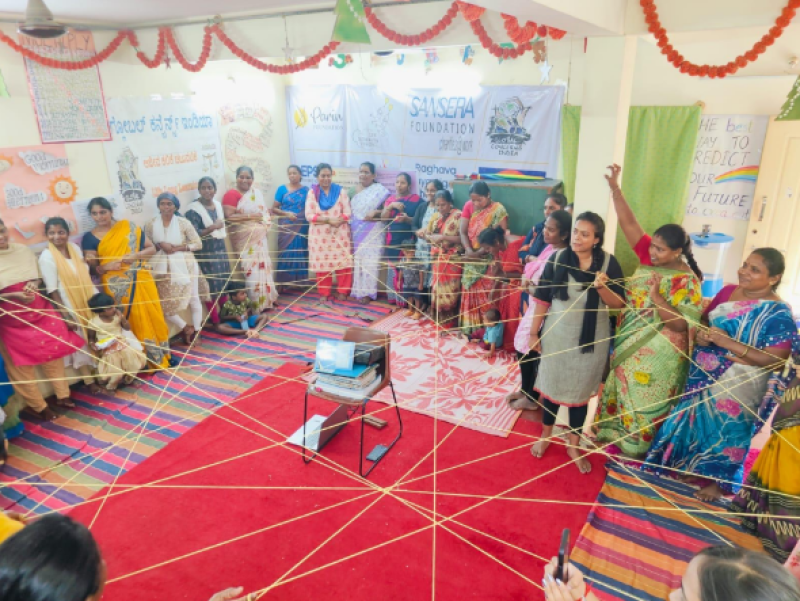Empowering Women Through Trauma-Informed Mindfulness: A Journey in Bangalore
By: Diksha Patel and Pooja S Mamadapalli, International Disaster Psychology

This summer, we had the privilege of conducting an eight-week global mental health internship in the LR Nagar slum near Koramangala, Bangalore, India. As part of our master's program in International Disaster Psychology: Trauma and Global Mental Health at the University of Denver, we collaborated with Global Concerns India (GCI). This NGO is led by the renowned social activist Brinda Adige, to address the complex challenges faced by underserved women in the community.
The focus of our project was to explore the impact of domestic violence on these women and to introduce trauma-informed, mindfulness-based community engagement as tools or healing and empowerment. Over eight weeks, we created and conducted a series of workshops that combined psychoeducation on various topics, including body awareness, self-versus society, and victimhood, along with trauma education on domestic and sexual violence. These sessions were enriched with teachings from yoga philosophy, subtle body stretches (Sukshma Vyayama), breathing practices (pranayama), and mindfulness techniques, making our project both holistic and culturally relevant.
The response from the women was overwhelmingly positive. Many of them expressed a newfound sense of hope and strength, with several participants voicing a desire for regular yoga sessions. This was especially evident through the participation of one community member particularly, a transgender woman who showed exceptional interest and potential in yoga. Her enthusiasm and commitment to the practice were inspiring, and we are now working to connect her with a yoga teacher training program to help her further develop her skills and potentially build a career as a yoga teacher.
While the primary goal of the project was to provide immediate support and relief to the women in the community, it also served as a learning experience for us. We gained invaluable insights into the importance of culturally sensitive, decolonized approaches to mental health care. The experience reinforced our belief that true recovery is a multifaceted process that goes beyond addressing symptoms; it involves fostering self-directed care, building resilience, and creating opportunities for empowerment.
Looking ahead, we are committed to continuing this work. Although we will be returning to Denver to complete our master's program, we plan to stay connected with GCI and the women of LR Nagar. We are considering collaborating with local yoga teachers to continue the mindfulness and yoga sessions in our absence.
Ultimately, this project has inspired us to pursue a long-term vision of opening an NGO in Bangalore dedicated to empowering transgender women and women through yoga and trauma-informed psychological practices. This experience has solidified our commitment to integrating these practices into our future work, with the hope of creating lasting, positive change in communities like LR Nagar.